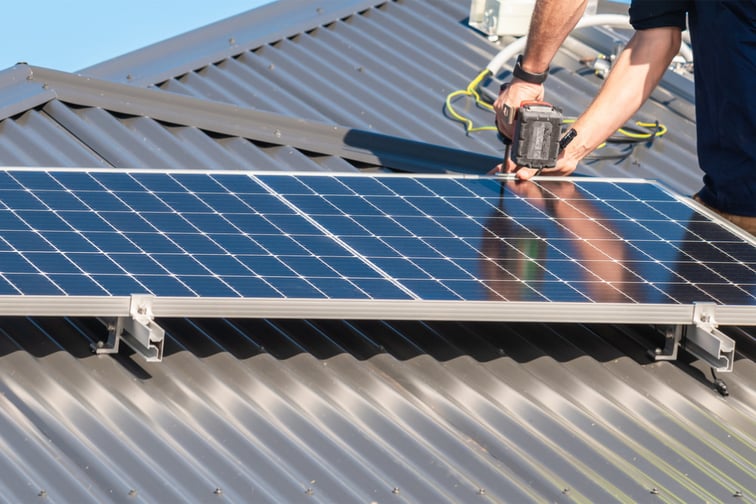

With energy prices predicted to soar 30% in costs in 2023, the majority of Australians are braced to spend thousands on home upgrades in a bid to reduce their bills, with nearly three-quarters saying they will invest in home improvements in the next two years.
This was according to a new survey commissioned by finance platform Money.com.au, which found that 72% of respondents will invest in home improvements in the next two years to reduce their energy bills. Some 29% planned to install solar panels, an investment of $4,000-6,000 for a six-kilowatt system.
Helen Baker, licensed financial adviser and Money.com.au spokesperson, said that while the upfront costs for solar panels can be costly, many households will see a significant return on investment after approximately six cycles of energy bills. A solar-panel system can also potentially save households more than $1,000 annually– Victorians can save an average of $791 per year, Queenslanders $1,127, NSW residents $1138, and South Australians $1,340.
“I have worked with clients who have seen their quarterly energy bills fall to two digits,” Baker said. It is also important for households to note that government rebates are available for solar panel installation. For instance, the Victorian Government offers a rebate of up to $1,400 for solar panel installation, while the NSW Government has a scheme for eligible, low-income households to access a free three-kilowatt system. Installing solar panels can also increase the value of a property, making it a worthwhile upgrade for those considering selling their home.”
The survey also found that 21% are prepared to update their appliances to a better energy rating to reduce their bills.
“Appliances account for approximately 30% of a household’s energy use, so switching to more energy efficient options can help Aussies slash significant costs off their bills annually,” Baker said.
A two-and-a-half-star rated, 8kg washing machine, for instance, would cost $118 annually to run if used once a day. This compared to $53.72 on a similar model with a five-star energy rating, saving households $64.28 annually and more than $640 over 10 years. By upgrading to a two-door, 400 litre, 5-star energy-rated refrigerator, households can save $32.83 annually and $328 over 10 years.
“It is important for households to weigh up whether it is worth switching out appliances, particularly if they don’t require an upgrade,” Baker said. “It may not be worth the cost to update an appliance if the cost savings amount to very little, while unwanted appliances are likely to end up in landfill, which can still have an impact on the environment. For households that still wish to upgrade but have an old appliance that is still in working order, consider selling the item to prevent waste.”
Other energy-saving changes Australian households are planning to invest in include better window dressings to prevent or trap light and heat from entering the home (10%), making some improvements to the home to increase ventilation and airtightness (7%), and installing better insultation in the roof (5%), the study found.
When asked if they believe Australians switching to renewable energy sources will result in lower household energy bills, a surprising 61% of the respondents said they weren’t confident in the positive impact of renewable energy use on a national scale. Of this figure, 32% think renewable energy won’t impact the cost of their household energy bills at all, while the remaining 29% believe it will result in more expensive bills.
The survey also revealed that older respondents were most skeptical of a national renewable energy transition, with 32% of over-50s believing renewable energy will increase their household energy bills, compared with 28% of 31-50-year-olds and 25% of under-30s. Meanwhile, 37% of over-50s think shifting to renewable energy sources won’t have any impact on their bills, compared to 30% of 31-50-year-olds and 26% of under-30s.
“It is surprising that a high proportion of Aussies think their bills will be more expensive when the country switches to renewable energy sources,” Baker said. “However, the population isn’t completely off base with this sentiment. At an individual level, renewable energy use, such as through solar panels, can reduce energy bills. However, its cost-saving power on a national scale is still a grey area. It will take a long time before Australia makes a full transition to renewable energy sources.”
Got other energy-saving ideas for your home? Share them in the comments section below.
